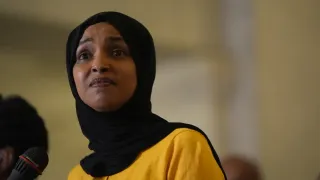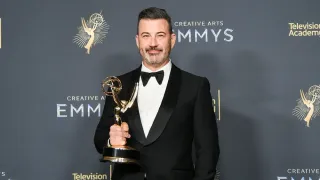December 10, 2016
Safe Injection Sites Get Boost from Garcia
Cynthia Laird READ TIME: 3 MIN.
Safe injection sites, supported by harm reduction advocates as a way for homeless people who use drugs and other addicts to do so in a supervised environment, got a boost last week from Health Director Barbara Garcia.
Garcia addressed a Board of Supervisors committee meeting last week where she was quoted by the San Francisco Chronicle as saying, "I think even if we were to open one it would be very successful." That comment prompted a wave of support from LGBT health advocates and others.
Gay Supervisor David Campos tweeted his support of Garcia's comment December 1. "THANK YOU to Health Director #BarbaraGarcia for having courage to say she supports supervised safe injection sites as a matter of health policy!" he wrote.
While Garcia was not available this week to speak with the Bay Area Reporter, she did tell the paper this spring that she's not opposed to safe injection sites, also known as supervised injection facilities.
"I do not oppose safe injection drug sites," Garcia, a lesbian, told the paper. But she said that it was a matter "about prioritization" of the Department of Public Health's budget and what other programs would be cut in order to fund such a proposal.
In a statement to the B.A.R. last Friday, Garcia pointed out that safe injection sites are currently illegal "and would require a change in state law."
"Safe injection sites, also called supervised injection services, may promote safer injection practices, connect users with health and social services, and reduce overdoses," Garcia wrote. "But they also pose several challenges."
She said the health department estimates that it would cost approximately $3 million and that one location would not suffice. "In a city with up to 22,000 people who inject drugs, as many as six sites could be needed," she explained.
"In San Francisco, we would anticipate difficulty finding locations for such sites," Garcia added.
Resolving neighborhood concerns would be one of the priorities.
"What is going to be palatable with the neighbors?" Garcia asked when she met with the B.A.R. this spring. "There will be neighbors who don't want drug addicts next door and who will be concerned they will bring trouble."
State Senator Scott Wiener (D-San Francisco) told the B.A.R. that he's open to safe injection sites with some caveats.
"I'd need to be assured that they would be extremely well managed so as not to create negative impacts, and focused on getting people healthy," he said in a phone interview.
Wiener also believes that state law should not be a barrier to local jurisdictions that may want to have such sites.
"I don't think the state should be preventing local jurisdictions from trying" new approaches, he said.
The New York City Council recently allocated $100,000 to the city's health department to study supervised injection facilities. The funds come from a $5.6 million allocation in the city's most recent budget targeted toward ending the AIDS epidemic.
Kelsey Louie, CEO of Gay Men's Health Crisis, told the B.A.R. this week that the funds have been allocated and proposals are being written. While GMHC is not involved in the project directly, Louie said the organization is very supportive.
"It is certainly a worthwhile issue to study," he said.
Louie added that like San Francisco, New York City is progressive and able to get things done that may be unconventional, like supervised injection sites.
However, San Francisco Mayor Ed Lee remains firmly opposed to the idea. He told the B.A.R. during an editorial board meeting several months ago his priority is to be "very careful."
"I'm not immediately buying the arguments," he said of the supervised sites. "We have methadone clinics. Where would they get the drugs?"
At the time, the mayor also said such facilities were not the "highest priority" of the health department.






